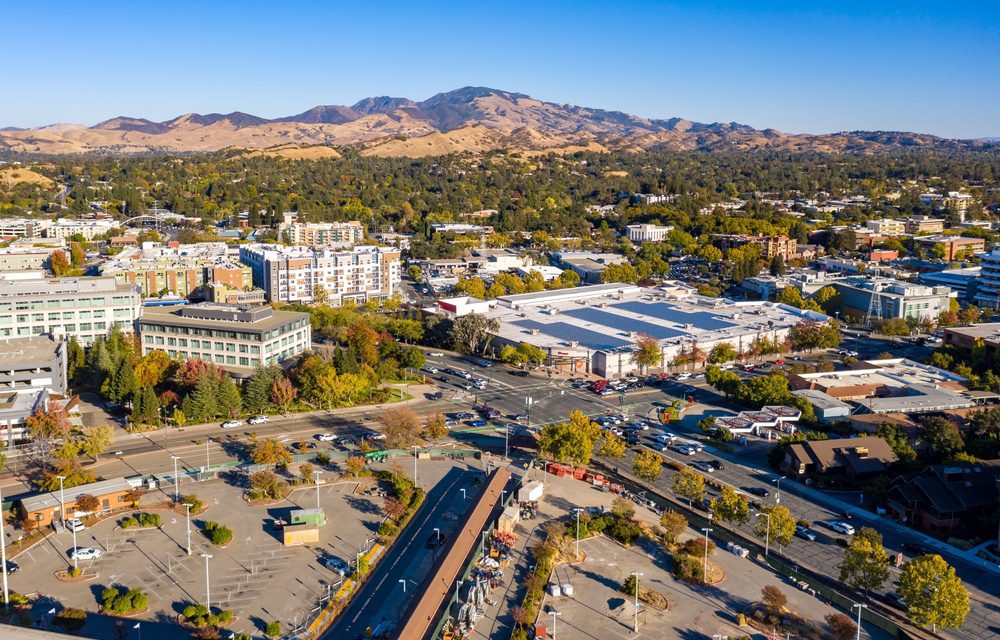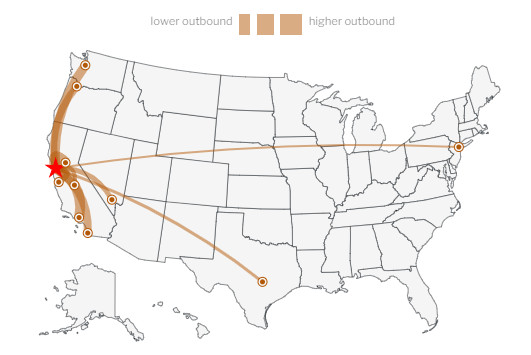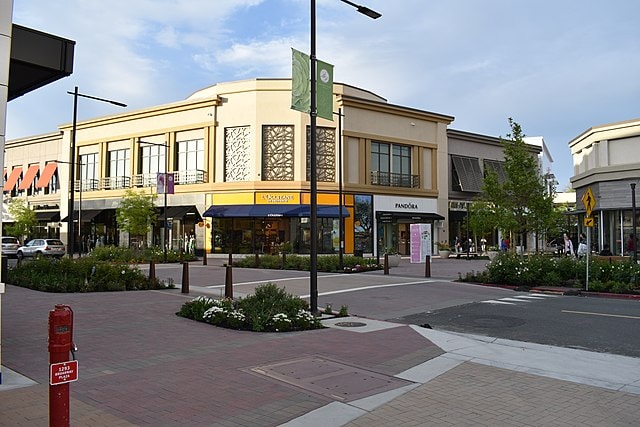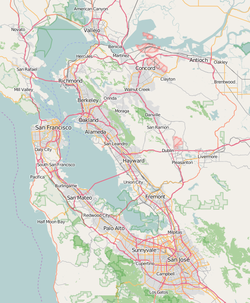Moving From San Francisco To Walnut Creek
San Francisco, with its iconic Golden Gate Bridge and steep hills, has long been a coveted destination for those seeking the quintessential California experience. However, as the city's housing market continues to skyrocket and traffic congestion reaches new heights, many are finding themselves priced out or worn down. For those seeking a more relaxed pace of life without sacrificing the amenities of the Bay Area, Walnut Creek is emerging as an attractive alternative. Located just 20 miles east of San Francisco, this charming suburb offers a unique blend of small-town charm and urban sophistication, making it an ideal choice for those looking to trade in the chaos of the city for a more laid-back lifestyle.

Benefits of Moving from San Francisco to Walnut Creek
Are you tired of the high cost of living and crowded streets of San Francisco? Walnut Creek, a charming city located in the East Bay region of California, might be the perfect alternative for you. With its mild climate, outdoor recreational opportunities, and a more relaxed pace of life, Walnut Creek offers a unique blend of urban amenities and suburban tranquility.
Lower Cost of Living
One of the main advantages of moving from San Francisco to Walnut Creek is the significant decrease in cost of living. The median home price in Walnut Creek is around $800,000, compared to over $1 million in San Francisco. Additionally, the overall cost of living in Walnut Creek is 25% lower than in San Francisco, making it an attractive option for those looking to stretch their budget further.
More Space and Better Commuting Options
Walnut Creek offers a more spacious and less crowded living environment compared to San Francisco. With a population density of around 5,000 people per square mile, Walnut Creek provides a more relaxed atmosphere and easier access to outdoor recreational activities. Moreover, Walnut Creek has a well-developed public transportation system, including the BART train, which makes it easy to commute to San Francisco or other nearby cities.
A Rich Cultural Scene
Walnut Creek has a thriving cultural scene, with a variety of art galleries, museums, and performance venues. The Lesher Center for the Arts, a renowned performing arts center, offers a range of productions, from musicals to dance performances. Additionally, the city hosts several festivals throughout the year, including the Walnut Creek Art and Wine Festival and the Walnut Creek Summer Festival.
Outdoor Recreation Opportunities
Walnut Creek is surrounded by natural beauty, with Mount Diablo State Park and the Diablo Foothills Regional Park offering ample opportunities for hiking, biking, and outdoor recreation. The city also has several parks and trails, including the Iron Horse Trail, which provides a scenic route for walkers, joggers, and cyclists.
Family-Friendly Environment
Walnut Creek is an excellent choice for families, with highly rated schools, including the Walnut Creek School District and the Acalanes Union High School District. The city also has a range of family-friendly activities, including the Children's Museum of the East Bay and the Lindsay Wildlife Experience, a wildlife rehabilitation center with a variety of animals.
| Category | San Francisco | Walnut Creek |
|---|---|---|
| Median Home Price | $1,000,000+ | $800,000 |
| Cost of Living Index | 196 | 146 |
| Population Density (people/sq mi) | 18,000 | 5,000 |
Should I move to Walnut Creek, CA?

Should I Move to Walnut Creek, CA?
Pros of Living in Walnut Creek
Walnut Creek is a popular residential area in Contra Costa County, California, known for its natural beauty, outdoor recreation opportunities, and vibrant downtown area. Here are some pros of living in Walnut Creek:
Mild Climate: Walnut Creek has a Mediterranean climate, with mild winters and warm summers, making it ideal for people who enjoy outdoor activities year-round.
Scenic Parks and Trails: The city has over 20 parks and trails, including the Lafayette-Moraga Regional Trail, which offers hiking and biking opportunities.
Upscale Shopping and Dining: Walnut Creek's downtown area is lined with high-end boutiques, art galleries, and restaurants, making it a great destination for shopping and dining enthusiasts.
Cons of Living in Walnut Creek
While Walnut Creek has its advantages, there are also some drawbacks to consider:
High Cost of Living: Walnut Creek is one of the more expensive cities in the Bay Area, with high housing costs, taxes, and living expenses.
Traffic and Congestion: The city's proximity to San Francisco and the nearby highway system can make traffic and congestion a problem, especially during rush hour.
Limited Nightlife: Compared to other Bay Area cities, Walnut Creek's nightlife scene is relatively limited, with few bars and clubs.
Job Opportunities and Commuting in Walnut Creek
Walnut Creek is situated near several major job centers, including San Francisco, Oakland, and the Silicon Valley. Here are some job opportunities and commuting considerations:
Proximity to Major Employers: Walnut Creek is close to major employers like John Muir Health, Kaiser Permanente, and Safeway Inc., as well as tech companies like Oracle and Chevron.
Commuting Options: The city has several public transportation options, including BART and County Connection bus services, making it easier to commute to nearby cities.
Telecommuting Opportunities: With many companies embracing remote work, Walnut Creek's quiet and scenic environment makes it an attractive option for telecommuters.
Where are people leaving San Francisco moving to?

People leaving San Francisco are moving to various cities across the United States, driven by factors such as high cost of living, congested traffic, and changing job opportunities. Some of the top destinations for those leaving San Francisco include:
West Coast Alternatives
Many people leaving San Francisco are opting for other West Coast cities that offer a similar climate and lifestyle at a lower cost. Some popular alternatives include:
- Portland, Oregon: Known for its vibrant cultural scene, food trucks, and microbreweries, Portland offers a more laid-back atmosphere and lower cost of living.
- Seattle, Washington: With its thriving tech industry and stunning natural beauty, Seattle is an attractive option for those who want to stay on the West Coast but escape the high costs of San Francisco.
- Los Angeles, California: While still inornings in California, LA offers a more affordable lifestyle and a diverse range of industries, from entertainment to tech.
Inland and Southern States
Some people leaving San Francisco are choosing to move to inland or Southern states, where the cost of living is often significantly lower. Top destinations include:
- Austin, Texas: This vibrant city is known for its music scene, outdoor recreation, and thriving tech industry, making it an attractive option for those looking for a more affordable lifestyle.
- Denver, Colorado: With its stunning natural beauty, outdoor recreation opportunities, and growing tech industry, Denver is a popular choice for those looking to escape the high costs of San Francisco.
- Nashville, Tennessee: This music city is experiencing rapid growth, with a thriving arts scene, a growing tech industry, and a more affordable cost of living.
Other Popular Destinations
Some people leaving San Francisco are choosing to move to other parts of the country, driven by factors such as job opportunities, family ties, or personal preferences. Top destinations include:
- New York City, New York: The city that never sleeps offers a fast-paced lifestyle, world-class cultural attractions, and diverse job opportunities, making it an attractive option for those looking for a change of pace.
- Boston, Massachusetts: With its rich history, world-class universities, and thriving biotech industry, Boston is a popular choice for those looking for a more affordable East Coast lifestyle.
- Washington, D.C.: Our nation's capital offers a unique blend of politics, culture, and history, making it an attractive option for those interested in policy, non-profits, or government work.
Is Walnut Creek a wealthy place?

Walnut Creek is generally considered a wealthy area, with a high cost of living and a strong economy. The city has a median household income of around $83,000, which is significantly higher than the national average. Additionally, the city has a high median home value of over $800,000, making it one of the more expensive places to live in the United States.
Income and Employment
The residents of Walnut Creek have a high median household income, with many individuals working in high-paying jobs in industries such as technology, healthcare, and finance. According to data from the United States Census Bureau, the top industries for employment in Walnut Creek are:
- Professional, scientific, and technical services: 24.1%
- Healthcare and social assistance: 15.6%
- Finance and insurance: 12.3%
These industries tend to offer higher salaries, contributing to the city's high median household income.
Cost of Living
The cost of living in Walnut Creek is relatively high, with prices for housing, transportation, and food above the national average. The city has a cost of living index of 146.2, which is significantly higher than the national average of 100. This means that residents of Walnut Creek can expect to pay more for everyday expenses such as:
- Housing: The median home value in Walnut Creek is over $800,000, making it one of the more expensive places to live in the United States.
- Transportation: Gasoline, insurance, and vehicle maintenance costs are higher in Walnut Creek than in many other parts of the country.
- Food: The cost of groceries and dining out in Walnut Creek is above the national average.
Education and Demographics
Walnut Creek has a highly educated population, with a strong emphasis on higher education. According to data from the United States Census Bureau, over 60% of residents have a bachelor's degree or higher. The city's demographics are also characterized by:
- A high percentage of white-collar workers: Over 80% of residents work in white-collar occupations.
- A high median age: The median age in Walnut Creek is around 45 years old, which is higher than the national average.
- A low poverty rate: The poverty rate in Walnut Creek is around 5%, which is significantly lower than the national average.
Is Walnut Creek considered San Francisco?

Walnut Creek is a city located in Contra Costa County, California, and it is not considered part of San Francisco. While it is often associated with the San Francisco Bay Area, Walnut Creek is a separate entity from the city of San Francisco.
Geographic Distance
Walnut Creek is approximately 25 miles east of San Francisco, making it a neighboring city but not a part of San Francisco proper. The two cities are connected by Highway 24, which makes it easy for residents and visitors to travel between them. However, Walnut Creek has its own distinct character, with a strong sense of community and a thriving downtown area.
Economic Ties
While Walnut Creek is not part of San Francisco, the two cities have strong economic ties. Many residents of Walnut Creek commute to San Francisco for work, and the city is home to a number of businesses that serve the San Francisco Bay Area. Additionally, Walnut Creek has its own economic hubs, including a major shopping center and a growing tech industry.
Cultural Identity
Walnut Creek has a unique cultural identity that is separate from San Francisco. The city has a strong arts scene, with a number of galleries and performance venues. It is also known for its outdoor recreational opportunities, including hiking and biking trails. While Walnut Creek is often associated with the San Francisco Bay Area, it has its own distinct character and sense of community.
- Walnut Creek has its own mayor and city council, which governs the city and makes decisions about its development and growth.
- The city has its own police department, which provides law enforcement services to residents and visitors.
- Walnut Creek has its own school district, which operates several schools in the area.
FAQ
What are the Pros and Cons of Moving from San Francisco to Walnut Creek?
When considering a move from San Francisco to Walnut Creek, it's essential to weigh the pros and cons. On the positive side, Walnut Creek offers a more suburban and peaceful lifestyle, with a smaller-town feel and a strong sense of community. The city also boasts a lower cost of living, with lower housing costs and lower taxes compared to San Francisco. Additionally, Walnut Creek has a more relaxed pace of life, with fewer crowds and less traffic congestion. However, some may miss the urban amenities and cultural attractions that San Francisco has to offer, such as world-class museums, theaters, and restaurants. Others may find the commute to San Francisco or other nearby cities to be lengthy and time-consuming.
How do the Housing Markets in San Francisco and Walnut Creek Compare?
The housing markets in San Francisco and Walnut Creek are vastly different. San Francisco is known for its highly competitive and expensive housing market, with the median home price exceeding $1 million. In contrast, Walnut Creek has a more affordable housing market, with a median home price that is significantly lower. Additionally, Walnut Creek has a wider range of housing options, including single-family homes, townhouses, and condominiums, whereas San Francisco is dominated by condos and apartments. However, both cities have a high demand for housing, and it's essential to work with a knowledgeable real estate agent to navigate the market.
What are the Job Opportunities like in Walnut Creek Compared to San Francisco?
While San Francisco is a hub for tech and startup companies, Walnut Creek has a more diverse economy, with major industries including healthcare, finance, and retail. Many companies, including John Muir Health and Kaiser Permanente, have a significant presence in Walnut Creek. Additionally, the city is home to a thriving downtown area, with a mix of small businesses, restaurants, and shops. While job opportunities may not be as plentiful as in San Francisco, Walnut Creek offers a more laid-back and family-friendly work environment, with a lower stress level and a better work-life balance.
How do the School Systems in San Francisco and Walnut Creek Compare?
Both San Francisco and Walnut Creek have highly rated school systems, with a strong focus on education. San Francisco Unified School District is one of the largest and most diverse in the state, with a wide range of magnet and charter schools. In contrast, the Walnut Creek School District is smaller and more suburban, with a more personalized and community-focused approach. Additionally, Walnut Creek has several highly rated private schools, including those focused on specific subjects like science and technology. While both cities have their strengths, the school system that best fits your needs will depend on your individual priorities and values.
